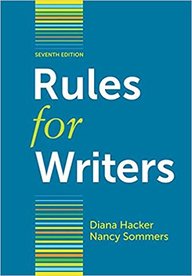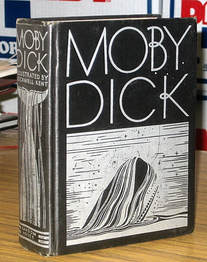 by Rebecca Rodriguez In high school, we are given our first copy of Diana Hacker’s Rules for Writers, which we are commanded to worship. It’s not a bad book, by any means, and (if read for anything other than MLA citation instructions) specific information on sentence structure can be found within it. In fact, there is an entire section dedicated to taking wordy sentences and tightening them. ←Example→ There is a section on tightening wordy sentences. Although fair warning is given that short sentences aren’t always concise, wordiness is considered ultimately taboo. Not only does it focus on eliminating redundancies, but it encourages us, the writers, to cut inflated phrases (e.g. change “At the present time…” into “Now...” or “Currently...”). We also must take every opportunity to reduce a clause into a phrases, or a phrase into a single word. Though we try not to worry about these rules outside of our research papers, it’s too late. Today’s generation of writers have already been brainwashed.  photo credit: friends.sfpl via Flickr photo credit: friends.sfpl via Flickr While reading a collection of essays from the New York Times entitled Writers on Writing, I came across an essay by E. L. Doctorow where he discusses “Quick Cuts: The Novel Follows Film into a World of Fewer Words,” and asserts how “today’s novelists tend not to write exposition as fully as novelists of the nineteenth century.” This much, I can say, is true. In fact, part of the reason I consider myself to be a minimalist writer may, indeed, be influenced by film. Let’s use chapter 32 of Herman Melville’s Moby Dick as an example. Perhaps, at the time, not everyone was familiar with whales. Most had never seen a whale, nor did they learn much about whales in school. Maybe some (the small percentage who could actually read) found a drawing of a whale in a magazine. Thus, Melville was able to get away with this chapter that seemed (at least from what I recall from high school) to drag on and on and on…. No writer could get away with that today. If the reader were that interested in whales, he could turn on his phone and do independent research. If the writer was that compelled, perhaps he should write for an academic magazine or textbook. See, because of the film Free Willy, everyone is well aware of what a whale looks like. We don’t need all that detail and history. Film has, certainly, taken away some of the exposition that pre-film literature required, but that doesn’t mean film “de-literates thought,” as Doctorow claims. Those with the desire to read will always love reading, and people haven’t started watching more films because they get to think less. Doctorow blames film and minimalist writing for the drastic difference in sales between books (being significantly lower) to active television viewers statistics. What he doesn’t take into consideration is the percentage of Americans without television access (being significantly lower) compared to the percentage of illiterate Americans. An article from The Huffington Post, entitled “The U.S. Illiteracy Rate Hasn’t Changed In 10 Years” shares that 32 million adults can’t read in the U.S., while 21% of those who are literate can’t read higher than a fifth grade level. Very few people lack the physical ability to watch television, while many more lack the actual skills required to read a book. Yes, laziness plays a role in those who frequent television over books, but illiteracy is an often forgotten factor.  photo via Pixabay.com photo via Pixabay.com Website Novel Writing Help also shares “9 Rules for Writing Dialogue,” and while I won’t go into detail on each rule, they all revolve around the same idea: everything must advance the plot. If a conversation can be removed without damaging the integrity of the story—cut it. And why stop at unnecessary dialogue? Does the color of the accent chair in the corner of the living room really advance the plot? Unless a character has spilled red wine on it, forget the description of the accent chair. Film generally moves quickly, and now we want our novels to do the same. We don’t care about the eye color of the cashier where you are buying your cigarettes; we only care that you are buying the cigarettes after not smoking for twenty years because, as it is later revealed, your husband has cheated on you with your mother (not based off of a true story). Let’s keep the relevant stuff and toss the rest. The blend of film’s vast exposure with years of programmed MLA guidelines and techniques on writing just might be the reason for increased minimalism today. Film, if anything, has only sparked creativity and encouraged writers to keep writing—with less unnecessary exposition. Minimalist writing only increases the rate at which we process information, and what’s wrong with that? It still requires the same amount of energy and concentration. Film is the visual representation of writing, and the lack of active readers has very little to do with the production of film. Perhaps the writing world can use film to promote reading, or maybe our public schools need to offer more English courses that inspire children to love reading (or using their brain in general). Film and reading go hand and hand—one cannot hurt the other, only better it.
0 Comments
Leave a Reply. |
Archives
July 2024
Categories
All
|
|
Glassworks is a publication of Rowan University's Master of Arts in Writing 260 Victoria Street • Glassboro, New Jersey 08028 [email protected] |
All Content on this Site (c) 2024 Glassworks
|

 RSS Feed
RSS Feed
